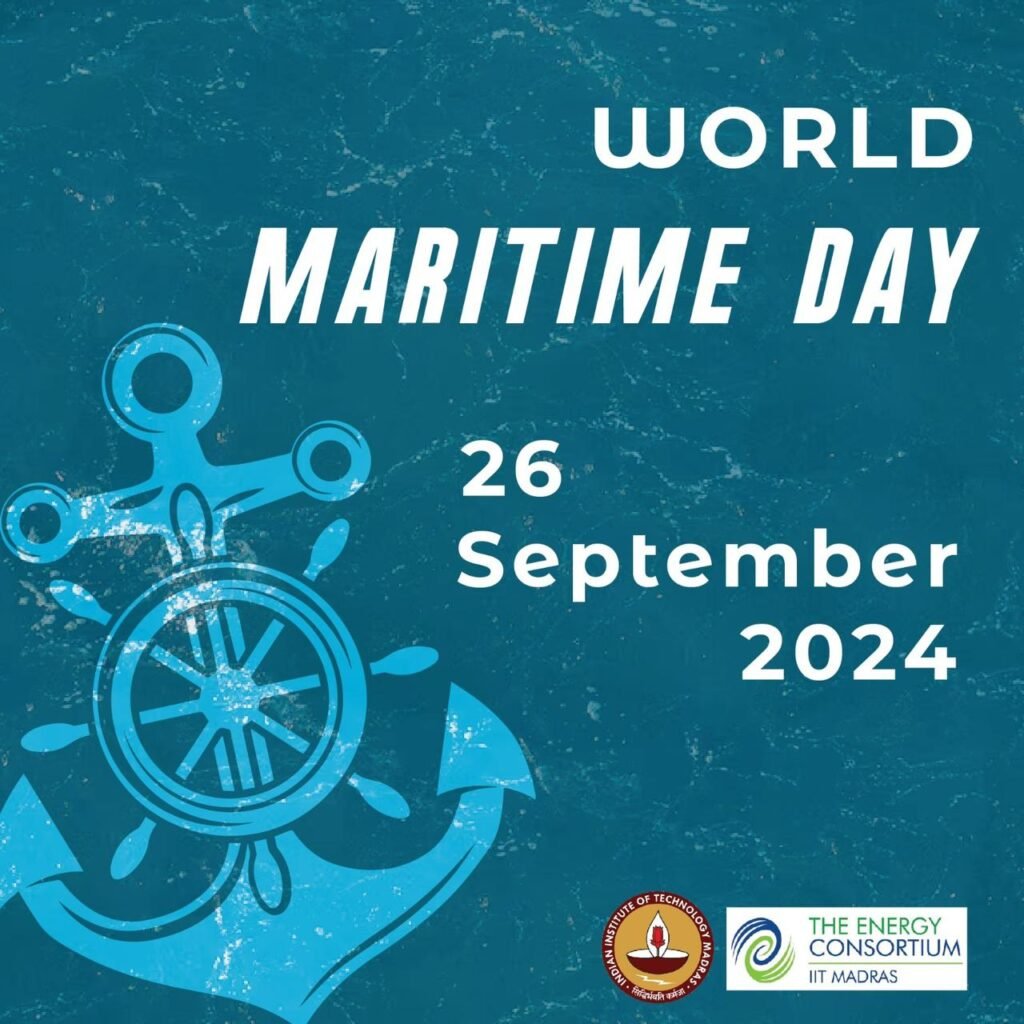On the World Maritime Day let’s pledge to work towards ensuring an inclusive and sustainable blue economy in India. This day serves to raise awareness about the significance of maritime industries and shipping, highlighting their vital contributions to the global economy, trade, and sustainable development. Blue economy refers to the sustainable use of ocean resources to drive economic growth, create jobs, and enhance the livelihoods of maritime communities. It encompasses a wide range including fisheries, maritime transport, tourism, offshore renewable energy and many other ocean based activities that harnesses the benefits in a sustainable manner.
The Indian Ocean region is also the centre of global commerce and India’s strategic location makes it a natural hub for maritime trade. The country boasts a long coastline of approximately 7517 km, with its coastal and offshore areas rich in biodiversity and critical ecosystems. It supports nearly 5 million fishers for their livelihoods and food security. Marine capture fisheries play a vital role in providing employment and generating export revenue, contributing significantly to the economy. The country handles 95% of the trade by volume through maritime transport, enabled by ports and shipping infrastructure. With a growing economy, maritime sector is also projected to grow significantly in the years ahead.
At the same time, we also need to be cognizant of the challenges of balancing economic growth with environmental protection in India. As a country we are faced with multiple challenges that emanate from the ocean, like climate change implications including sea level rise and ocean acidification, pollution in terms of marine litter and oil spills, biodiversity decline, and overfishing. There is dire need to inculcate sustainable practices in fishing, reducing marine pollution and protecting marine habitats, which contributes to a healthy and resilient blue economy. Moreover, innovative technologies in renewable energy development and sustainable port infrastructure can help address some of these challenges. International collaboration also plays a primal role in knowledge sharing and getting access to latest technologies.
India’s next phase of growth is closely bound to the oceans. As the country is expected to become the third largest economy within this decade, blue economy will play a vital part, which has been identified as one of the ten core dimensions for growth by 2030. With a growing population, the demand for energy and other resources are ever increasing. The oceans can provide a substantial amount of clean energy to meet the country’s growing energy demands while reducing reliance on fossil fuels and help close the mitigation gap. However, it becomes imperative to harness the potential of oceans in a responsible manner, aligning with ‘SDG 7: Ensure access to affordable, reliable, sustainable and modern energy for all’ and ‘SDG 14: Life below water’ aiming to ‘conserve and sustainably use the oceans, seas and marine resources for sustainable development’
On this World Maritime Day, let us acknowledge the power of the blue economy and its vital role in achieving sustainable development and fostering a healthy ocean environment for India’s future.
Author – Dr Rahul Muralidharan, Energy Consortium, IIT Madras.



